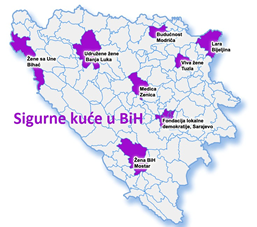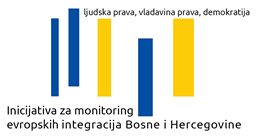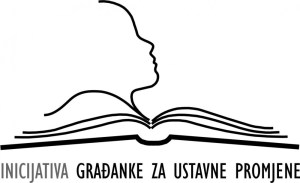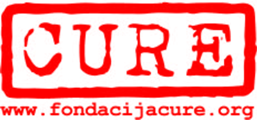A STAR ACTIVIST STILL SHINES BRIGHT
Flashback Bosnia and Herzegovina 1993. Huge numbers of Muslim refugees fleeing ethnic cleansing began streaming into 17-year-oldHadzihalilovic's town of Zenica, about 50 miles north of Sarajevo, where they desperately sought food and shelter. Among them were women who had suffered the worst atrocities of sexual violence.
In an effort to get her out of the house, Hadzihalilovic’s mother took her to a meeting of a local feminist organization. It wasn't long before an activist was born. The teenage Hadzihalilovic worked with the women of Zenica and Germany to open a shelter, which came to be known as Medica Zenica, where victims could receive medical and psychological care. It was here that she became painfully aware of the realities of war and how women became the most vulnerable victims of violence, including rape and sex trafficking.
Hadzihalilovic’s work led her to World Learning, a U.S.-based NGO, and its Strategies, Training, Advocacy and Resources Network, known as STAR Network, funded by ZONTA International. She became a project coordinator and director of two anti-trafficking programs in the region between 2002 and 2007. Since then, she has dedicated her life to protecting human rights in her native Bosnia and Herzegovina. In addition to promoting the rights of women and advocating for their political participation, she has previously helped conscientious objectors get exemptions from compulsory military service.

On March 25th — almost two decades since that war — she will be honored with the prestigious Clyde Snow Social Justice Award at the University of Oklahoma for her work defending the human rights of women.
Every two years, the award honors a person or group whose work contributes to the rehumanization of victims of human rights abuses. It is named after the world's most distinguished forensic anthropologist and prominent human rights figure, Clyde Snow, who identified human remains of numerous conflicts and found scientific proof of hidden atrocities, including in Bosnia and Herzegovina. Snow passed away in 2014 at the age of 86 in Norman, Oklahoma.
The international award is intended to throw a spotlight on unsung heroes working locally and to inspire other grassroots activists. “There are people doing amazing work all around the world who get recognition,” said Misha Klein, Associate Professor at the University of Oklahoma's Department of Anthropology and Chair of the Clyde Snow Social Justice Award Committee. “We want to honor people we wouldn't otherwise know about.” Klein added that nominations for the 2016 award came from four continents.
“Selma embodies this award,” said Jill Irvine, Presidential Professor of Women's and Gender Studies and Co-Director of the Center for Social Justice at the University of Oklahoma, who nominated Hadzihalilovic.
“What sets Selma apart is her willingness and ability to find the most vulnerable and often forgotten victims of wartime violence and help them in whatever way she can — even at some cost to herself,” noted Professor Irvine in her nominating letter. “I cannot think of a more deserving recipient of this award.”
When asked about being chosen for the award, Hadzihalilovic said she was surprised. “I was humbled that someone recognized my work,” she said. “Social activism is really important. You are endlessly doing work that doesn't get noticed, or targeting situations that no one wants to talk about. We are doing work with people who are almost invisible. It can be lonely. This award gives me strength to continue.”
Hadzihalilovic credits World Learning for the award and the opportunity she had early on to become a leader in her community. She was mentored by the late American feminist activists Lael Stegall and Jill Benderly, who co-founded the USAID-funded STAR Delphi Network in 1994 to help women in the Balkans recover from trauma and rebuild damaged lives after the war. The network became part of World Learning in 1999.
Hadzihalilovic, who speaks Bosnian-Croatian-Serbian, French, German, and English said her World Learning experience helped her to understand the world beyond her borders, enabling her to become a more effective community activist; she was exposed to the United Nations and international development agencies, and learned about the international funding processes, communication with donors and reframing the needs of grassroots organizations.
Most importantly, she says, she learned how to be the voice of women and girls affected by social injustice, violence and discrimination. “It taught me about working locally and globally at the same time,” she said.
As depicted in the 2011 movie “Whistleblower,” a shocking film starring Rachel Weisz which told the story of Balkan peacekeepers who turned a blind eye to the trafficking, kidnapping, torture and rape of Bosnian women and women from Eastern Europe, Hadzihalilovic said her early work focused on prevention and raising awareness among local women, teaching them to recognize the signs of trafficking and ways to protect themselves.
“We had a lot of reports of traffickers getting girls to do things because a rape drug was put into their drink,” she said.
In time, Hadzihalilovic expanded her anti-trafficking efforts, and together with many other women activists co-founded the RING network, a group of women's organizations from Bosnia and Herzegovina working to end the trafficking of women and children as well as partnering with community groups throughout the Balkans to initiate community responses to the needs of vulnerable groups and design prevention programs. She is also an active member of several national and international human rights networks.
While the world's focus has shifted to other conflict zones since the 1995 Dayton Accords were signed, ending the three and a half year long Bosnian War, Hadzihalilovic insists the story isn't over. She describes the peace in Bosnia and Herzegovina as fragile, and argues that the empowerment of women is a vital part of keeping the region stable.
Her human rights work continues to concentrate on women and girls, protecting the rights of socially marginalized and invisible women, including women with disabilities, Roma, rural women, single mothers, senior women, and LGBT women. Today Hadzihalilovic works with a feminist activist grassroots organization called Fondacija CURE (“Girls Foundation”), where she oversees the BiH Women's Network and advocates for improved quality of life for women and girls.
“There are still so many challenges, and we are there fighting for a just world,” she said, noting that the scars of war remain today even as she and other local activists share their knowledge with women in other conflict zones and peace processes. “It is our responsibility as citizens of the world — to share the lessons that we’ve learned with survivors from other conflicts,” said Hadzihalilovic.
She firmly believes that any country emerging from conflict must include women at the negotiating table, an oversight she said that still haunts the Balkans today.
Hadzihalilovic notes that the situation is now much more stable in Bosnia and Herzegovina than in years gone by but that people are still scared about what tomorrow may bring: “We are in a situation of constant fear that everything will simply collapse around us.”
Stephanie Genkin is a media consultant for World Learning, a non-profit organization that focuses on international development, education and exchange programs in 60 countries. She was a producer at CNN for almost 15 years and before that a freelance print reporter based in the Middle East. Ms Genkin earned an MPhil. in Middle Eastern Studies from the University of Oxford, St. Antony's College and was a Fulbright scholar to Jordan.
http://www.kosovotwopointzero.com/en/article/2085/a-star-activist-still-shines-bright








